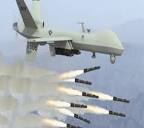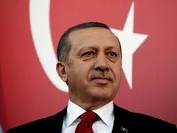|
|
|
Confronting the Covid-19 Crisis:
Danger and Opportunity
Kevin P. Clements
Director, Toda Peace Institute
The Coronavirus has now spread around the planet, sending billions of people and states into “lockdown” and “self-imposed isolation”. Everyone is practicing physical and social
distancing. The virus has stressed health services everywhere and caught many states
off-guard and unprepared to deal with its malign consequences. National economies and the integrated global economy are in freefall. Political systems, social resilience and obedience to political authority are all being tested by Covid-19. 2020 is developing into a
transformative moment in human history. The challenge will either result in innovative
systemic change or a reassertion of a status quo that has proven incapable of dealing with this pandemic and with increasing economic, political, social and environmental dysfunctionality.
At the time of writing, there are over 2.8 million recorded cases of Covid-19 worldwide; 194,000 people have died, with half a million in recovery. Coronavirus presents an existential challenge to humanity and a global security threat for which few states or peoples were prepared.
It’s a reminder that human beings do not have total mastery of nature and, unless we are more attentive to what the natural world is telling us, this will be the first of many preventable catastrophes. It is critical, therefore, that we do not let short term fixes blind us to the longer-term challenges.
The mortality rate from Covid-19 is much higher than that for global terrorism yet, over the past 20 years, states have directed more resources to military threats than to health threats and to State Security rather than Human Security. The U.S., for example, which is currently the epicentre of the crisis, spent an average of $180 billion annually on counterterrorism efforts, compared with less than $2 billion on pandemic and emerging infectious–disease programmes. In retrospect, this bias now seems to be totally misplaced. The military budget is also way out of line with the more dangerous and probable 21st century threats. The U.S. Congress, for example, appropriated $685 billion in 2019 for the Pentagon, compared with $7 billion for the Centre for Disease Control.
This pandemic, therefore, provides us with a unique opportunity to debate the nature of 21st century threats and to reorder political and economic priorities to meet the real rather than the imagined threats to human existence.
Crises are both dangers and opportunities. We are aware of the dangers but what are the opportunities?
In the first place, we need to start rethinking the nature of risk, threat and danger for the 21st century. Covid-19 will make it very difficult for 21st century states to elevate military threats over health, global pollution, mass migration, refugees, climate change, and inequality. It is imperative that people and policy makers start thinking about the integrated nature of these threats to human well-being and survival. In particular, it is important to frame these challenges in terms of Human Security, despite concerns about the analytical utility of this concept. Its normative purpose is more imperative now than when it was first mooted and it is not beyond the wit of theorists to give the term more analytical precision.
As the Brundtland Commission put it, “The Earth is one but the world is not”[1]. Much more attention, therefore needs to be dedicated to nurturing and building on global commonalities rather than exacerbating national differences. The Human Security framework is the one that seems to offer most promise for altruistic and compassionate politics. It has been derided in the past and scorned for being too inclusive and too focused on
individual and collective wellbeing rather than national security. But Covid-19 has underlined the limitations of military national security frameworks which are clearly of no help to medical catastrophe, climate change or the elimination of poverty.
Nuclear weapons and conventional arms races cannot solve today’s global problems. On the contrary, they exacerbate and complicate them.
Military force is a sign of defeat, a failure of politics and is totally unhelpful to the existential threats we are facing in the 21st century. The Human Security framework starts with the satisfaction of basic human needs for welfare, recognition, and safety. These needs require food, clean water, unpolluted environments and a major focus on health and educational systems that will enable everyone to live healthy and
productive lives. To develop strategies that can promote this vision will require a significant reordering of national and global priorities away from military security to the security of the planet.
Dealing with global pandemics is one thing but looming behind it are the medium to long term consequences of climate change which arguably will generate as much chaos as Covid-19 over the next 50 years. The Lancet, for example, predicts up to 500,000 deaths from climate change by 2050. The world has plenty of clear warnings (e.g. melting ice caps, adverse weather events and pollution) that climate change has to be accorded as much significance as nuclear warfare. If we do not move to low carbon economies and a diminished reliance on fossil fuels, we will be subject to nature’s full climate fury. Like Covid-19, this too will affect land, livelihoods, housing, refugees and forced migration as well as economic and social wellbeing and the probable deaths of millions.
The challenges of the 21st century, therefore, are going to require the best minds focusing on the diverse ways in which our social, economic and political systems are all linked, and the ways in which individual and inter-connected threats can and will disrupt political and social equilibrium. According priority to Human Security requires systemic and holistic thinking if we are to make our homes, neighbourhoods and nations safer places to live, move and be in.
Second, there are no national solutions to any of these integrated threats. They require
regional and global co-operation to deal with them. The appeal of the Secretary General of the United Nations, Antonio Guterres, for a global ceasefire to meet the more important threat of the coronavirus is an important reminder that we need to start thinking about 21st century risks in terms of their probability and lethality. This will focus minds on problems that have nothing to do with traditional security threats. As Guterres said when announcing his call, “The fury of the virus illustrates the folly of war. That is why today, I am calling for an immediate global ceasefire in all corners of the world. It is time to put armed conflict on lockdown and focus together on the true fight of our lives.”[2]
A post Covid-19 world, therefore, needs to revitalise the multilateral project for the 21st
century. Instead of withdrawing from agencies like the WHO, states and peoples need to
focus on making them more efficient, effective and relevant to global decision making.
Similarly, national and global political leaders have to start focusing their attention on the effectiveness and relevance of institutions, strategies and goals that will advance
humanity instead of narrow concepts of the national interest.
Progress toward the Millennium Development Goals, adopted by the U.N. in 2000, or more recently the Sustainable Development Goals, has been extremely uneven. This
pandemic is hitting the poor particularly hard, thus exacerbating the problem of
poverty and inequality. This pandemic is forcing us to rethink social, economic and political priorities. The Human Security and revitalised multilateral institutions will enable innovative policy making.
Third, it is clear that this pandemic is going to result in some fundamental changes to national, regional and global economic activity. A total of 81% of the global workforce of 3.3 billion people have had their workplaces fully or partially closed. Social isolation strategies have led to the closure of many companies and the laying off of staff – either
permanently or temporarily. We have not as yet seen the full impact of this pandemic on the economies of the global south. As Ramesh Thakur puts it:
The poor countries, including India, are at risk of getting the worst of both worlds: failure to check the epidemic and failure to check economic collapse. Why? First because of lack of state capacity, they lack the administrations and health systems to implement and enforce ‘test, isolate, treat and trace’ regimes. What exactly does social distancing in conditions of the sprawling Dharavi slum in Mumbai mean? Second, the dominance of the informal sectors and extreme dependence on daily wages to keep families afloat mean that economic disasters will deepen the misery of millions and multiply illnesses and deaths.[3]
It is important, therefore, that new economic thinking focuses attention on ways to revitalise sustainable economic activity in the South as well as in the industrialised North. It would be very reactionary to reassert old economic models in a post Covid-19 world. States and peoples have to think boldly about new economic systems for the 21st century. In the global north, for example, as people are allowed to resume normal economic activity, there will be some big changes. Online shopping will probably expand and more remote working will become permanent. Because of all the robust economic packages that have been put in place by governments anxious not to generate total economic collapse, it will be very
difficult for states to argue for a return to an old neo-liberal agenda based on small government and economic austerity. This crisis has demonstrated that budgetary decisions to cut back on the welfare state to balance the budget are a political and ideological choice not economic necessity. There is no reason, for example, why notions of a Universal Basic
Income cannot be contemplated since many states have already guaranteed something equivalent to tide people over the crisis. Let’s work to ensure that the economic systems that flow out of this crisis have social welfare at their heart rather than the wellbeing of the major corporations.
Fourth, it is vital to build on the revitalisation of community and social solidarity (that has emerged in response to the virus) to ensure the development of resilient and robust social institutions. When the crisis is over, it’s important that politicians and peoples do not forget that the people who got us through this calamity are the essential service workers, the front line health professionals, and all the often
ignored and unrecognised people who are critical to maintaining the fabric of modern urban living. It’s not the tycoons and celebrities who are getting us through; it’s checkout counter operators, doctors, nurses, plumbers etc. This, therefore, is a chance for us to reassess who we are rewarding with high salaries and why. But most of all, it’s important to build on the resilience of the family and household unit as the cornerstone of sustainable community. This means going with the grain of locality and making sure that neighbourhoods, towns and cities are more self-reliant, more sustainable and more sensitive to the needs of all rather than the needs of a few.
Finally, it is vital that autocratically inclined leaders do not use this pandemic to put in place permanent emergency authoritarian powers. There is evidence of this
happening in Hungary, Poland, Israel and Brazil. The pandemic is a wakeup call to all of us to revitalise democratic institutions, promote equality under the rule of law and to devise mechanisms that will generate higher levels of political capacity and
probably a more central role for the state in economic direction decision making. This centralisation of power should, however, be accompanied by higher levels of participation in political decision making. This crisis should be used to transform politics in a progressive direction everywhere so that everyone has womb to tomb security, with free education for all and health systems that will meet whatever
challenges the 21st century throws at us.
So, while this pandemic is creating fear, chaos and anxiety (including disrupting our Toda office work and programme) it is a unique opportunity for new visions, and new opportunities to build a world that is more empathetic, more equal, less fearful, less polluted and more in tune with, rather than opposed to, nature. This is a moment of creative possibility. Let’s work to ensure that what emerges from this crisis is a world fit for the rest of this challenging century.
| The Author |
Kevin P. Clements is Director of Toda Peace Institute. He is the Foundation Chair of Peace and Conflict Studies and former Director of the New Zealand National Centre for Peace and Conflict Studies (NCPACS) at the University of Otago, New Zealand. For several years, he served as Secretary General of the International Peace Research Association (IPRA), President of the IPRA Foundation and Secretary General for IPRA’s Asia-Pacific region (APPRA). He was also Secretary General of International Alert, London, Lynch Professor and Director of Institute for Conflict Analysis and Resolution (ICAR) at George Mason University, and Head of the Peace Research Centre at Australian National University. He has been a regular consultant to a variety of non-governmental, governmental and intergovernmental organisations on conflict resolution, peacebuilding, disarmament and arms control, and Human Security issues. Dr. Clements received the New Zealand Peace Foundation’s 2014 Peace Award.
[1] Brundtland, G. (1987). Report of the World Commission on Environment and Development: Our Common Future.
[2] Guterres, Antonio (2020). Statement by the U.N. Secretary General, 23 March 2020. https://www.un.org/en/un-coronavirus-communications-team/fury-virus-illustrates-folly-war
[3] Thakur, R. Personal correspondence, 21 April 2020.



